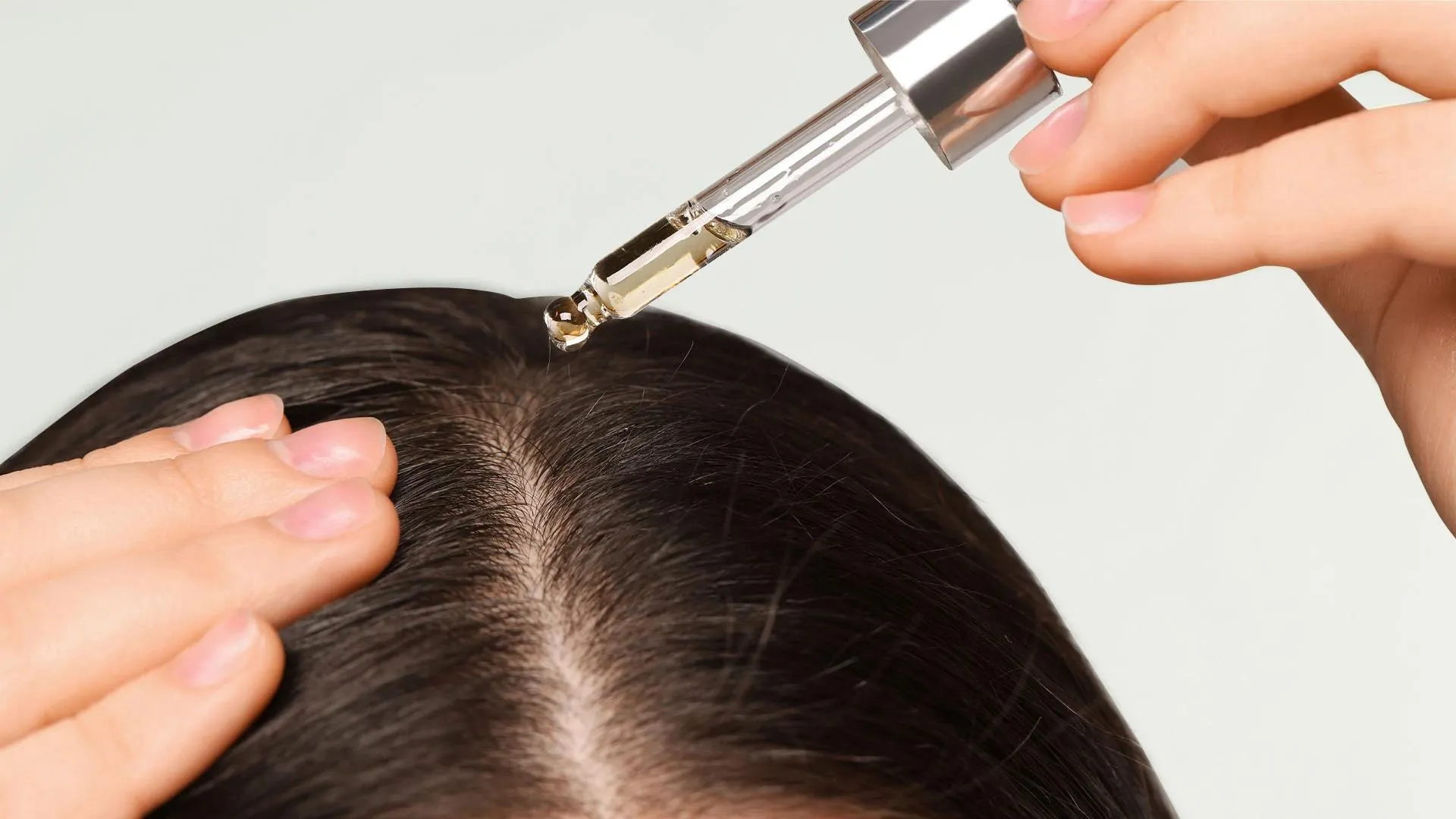Combat Monsoon Hair Loss with Biotin Oil: Top Tips

Combat Monsoon Hair Loss with Biotin Oil: Top Tips for 2025
The monsoon season brings a refreshing break from the scorching summer heat, with soothing rains and a cool breeze. However, the increased humidity and dampness can wreak havoc on your hair, leading to excessive shedding, frizz, and weakened strands. If you’ve noticed more hair on your pillow, in your shower drain, or scattered around your home, it’s time to revamp your hair care routine. One highly effective remedy gaining attention in 2025 is biotin oil. Known for its ability to strengthen hair, reduce hair loss, and promote growth, biotin oil is a game-changer for maintaining vibrant locks during the rainy season. This article explores how biotin oil can combat monsoon hair loss and offers practical tips to keep your hair healthy and strong.

Why Does Hair Loss Increase During Monsoon?
The monsoon season, while refreshing, creates a challenging environment for hair health. High humidity levels make hair strands absorb excess moisture, leading to frizz, tangling, and breakage. Rainwater, often mixed with pollutants, can weaken hair follicles and clog the scalp, exacerbating hair fall. Additionally, the lack of sunlight during the rainy season reduces vitamin D absorption, which is essential for hair growth. Fungal infections, such as dandruff, also thrive in damp conditions, further contributing to scalp irritation and hair loss. These factors combined make monsoon a critical time to adopt a targeted hair care routine to prevent excessive shedding and maintain healthy locks.
Fortunately, biotin oil has emerged as a powerful solution to address these monsoon-related hair struggles. Backed by scientific research and expert recommendations, biotin oil strengthens hair, reduces breakage, and promotes growth, making it an essential addition to your seasonal hair care regimen.
What is Biotin Oil and How Does It Work?
Biotin oil, derived from vitamin B7 (also known as vitamin H), is a water-soluble B vitamin crucial for maintaining healthy hair, skin, and nails. It plays a vital role in supporting keratin production, the primary protein that forms the structure of hair. According to Dr. Ishan Sardesai, a renowned hair transplant surgeon, “Hair is mainly made of keratin, a strong protein. Biotin oil helps support keratin, which can make your hair less likely to break or fall out.” By strengthening the hair shaft, biotin oil reduces thinning and promotes healthier, more resilient strands, even in the humid monsoon climate.
Research supports these claims. A study published in *Dermatology Research and Practice* found that participants who used biotin supplements experienced significant improvements in hair growth and a reduction in hair loss. Another study from the Ablon Skin Institute Research Centre and the University of California, published in the *Journal of Clinical and Aesthetic Dermatology*, highlighted biotin’s positive effects on hair health, particularly in cases of deficiency or thinning. While biotin deficiencies are rare, factors like poor diet, stress, or monsoon-related scalp issues can reduce biotin levels, making supplementation or topical application beneficial.
Benefits of Biotin Oil for Monsoon Hair Loss
Biotin oil offers multiple benefits that make it an ideal choice for combating monsoon hair loss. Here are some key advantages:
Strengthens Hair: By supporting keratin production, biotin oil fortifies hair strands, reducing breakage caused by humidity and tangling. This is particularly important during the monsoon when wet hair is more prone to damage.
Promotes Hair Growth: Biotin stimulates hair follicles, encouraging new hair growth and improving overall hair density. This helps counteract the excessive shedding often experienced during the rainy season.
Reduces Scalp Irritation: Biotin oil’s nourishing properties soothe the scalp, reducing irritation from fungal infections or dandruff, which are common during monsoon due to damp conditions.
Enhances Shine and Texture: Regular use of biotin oil can improve hair’s shine and smoothness, combating the frizz and dullness caused by monsoon humidity.
How to Use Biotin Oil for Maximum Results
Incorporating biotin oil into your hair care routine is simple and effective. Here are three expert-recommended methods to use biotin oil during the monsoon season:
Scalp Massage: Apply a few drops of biotin oil directly to your scalp and gently massage with your fingertips for 5-10 minutes. This stimulates blood circulation, promotes hair growth, and ensures the oil penetrates the scalp to nourish hair follicles. Perform this ritual 2-3 times a week before washing your hair.
Hair Mask: As suggested by Dr. Sardesai, mix biotin oil with a carrier oil like coconut or olive oil to create a nourishing hair mask. Apply the mixture to your scalp and hair, leave it on for at least 30 minutes (or overnight for deeper conditioning), and wash it out with a mild, sulfate-free shampoo. This treatment strengthens hair and prevents breakage caused by monsoon humidity.
Biotin-Infused Products: Incorporate shampoos, conditioners, or serums containing biotin into your daily routine. These products provide a convenient way to deliver biotin’s benefits without additional steps, ensuring consistent care for your hair.
Biotin-Rich Foods to Support Hair Health
While topical biotin oil is effective, boosting your biotin intake through diet can further enhance hair health. Many common foods are rich in biotin, making it easy to incorporate this vital nutrient into your meals. Here are some top biotin-rich foods to include in your diet during the monsoon:
Egg Yolks: A versatile and nutrient-packed source, egg yolks provide approximately 10 mcg of biotin per cooked egg, meeting a significant portion of the daily recommended intake of 30 mcg for adults.
Cheese: While cheese contains biotin, consume it in moderation if you’re watching your calorie intake. Opt for low-fat varieties to balance nutrition and health goals.
Mushrooms: These are a great source of biotin and can be added to stir-fries, soups, or salads for a nutrient boost.
Cauliflower: Incorporate cauliflower into salads or roasted dishes to increase your biotin intake while enjoying a low-calorie, fiber-rich vegetable.
Bananas: A convenient snack, bananas are rich in biotin and other nutrients that support overall hair health.
Oats: Start your day with a bowl of oats, which provide biotin and promote healthy digestion, benefiting your overall wellness.
Spinach: Leafy greens like spinach are packed with biotin, vitamins, and minerals that nourish hair and support scalp health.
Whole Grains: Incorporate whole grains like brown rice or quinoa into your meals to boost biotin levels and promote stronger hair.
Additional Monsoon Hair Care Tips
To maximize the benefits of biotin oil and maintain healthy hair during the monsoon, consider these expert-backed tips:
Stay Dry: Use a microfiber towel to gently dry your hair after washing to minimize frizz and breakage. Avoid excessive heat styling, as it can weaken hair in humid conditions.
Limit Hair Washing: Over-washing strips natural oils from your scalp, leading to dryness and breakage. Wash your hair 2-3 times a week with a gentle, sulfate-free shampoo to keep your scalp clean without compromising moisture.
Use Humidity-Resistant Products: Opt for hair products designed to combat humidity, such as anti-frizz serums or leave-in conditioners, to keep your hair smooth and manageable.
Regular Trims: Schedule trims every 6-8 weeks to prevent split ends, which can worsen during the monsoon due to moisture and tangling.
Protect from Rainwater: Cover your hair with a scarf or umbrella when stepping out in the rain to shield it from pollutants and acidic particles that can damage strands.
Precautions When Using Biotin Oil
While biotin oil is generally safe, overuse or improper application can lead to side effects. Consult a healthcare professional before starting biotin supplements, especially if you’re on medication or have underlying health conditions. Potential side effects of excessive biotin intake include skin rashes, gastrointestinal issues, or problems with insulin release. For topical use, perform a patch test to ensure you’re not allergic to the oil or its carrier ingredients. Always follow recommended dosages and application guidelines to achieve the best results without adverse effects.
Comment / Reply From
No comments yet. Be the first to comment!






